Juho Haapala is a former and current Water and Development Research Group member, who had his defence in 2018 about governing water for local development. After the graduation, he spent two years in rural Nepal working in water-related governmental water projects and in this blog, he reflects the process of leaving in academia, working in the development sector and returning back to academia.
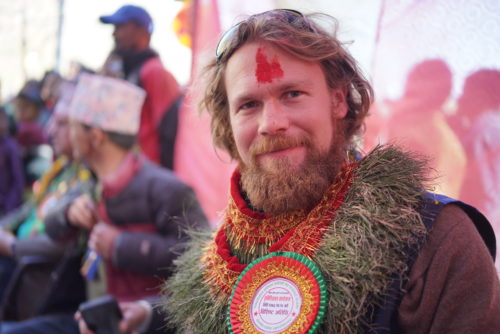
In March 2018, I was finishing my doctoral thesis after 4 years of hard, continuous work. I had started the post-graduate studies right after graduating from my Masters’ studies, as most of us, with no significant expert career in the past. Preparing for the foreseeable final submission of the thesis, I faced the inevitable problem that many of us young professionals may face at this point – the need to start considering the next steps in the life and career.
Here I describe my experiences outside of Aalto since then, as I think it might benefit the other young professionals who are considering their career options after the graduation (from either Master’s or Doctoral studies) and give a picture of some international work prospects in the field of development cooperation.
Two weeks after the submission of the thesis, I found myself packing my stuff and flying to Nepal for the next 2 years. I would work as a junior project manager in a large-scale, long-term rural development project. It was funded by the governments of Finland, Nepal, and the EU, employing 350 local and a couple of international experts, having more than a hundred thousand direct local beneficiaries annually, and a budget of approximately 70 million euro. I was in the project management team – a group of few local and international experts who led the project operations.
I worked for a consultant company, that implemented and managed the project under the supervision of the funder governments. I, therefore, got good experience from project management, leading hands-on implementation works and people, managing information flows, as well as tons of field experience. Similar Junior positions, salaried by the government of Finland, are occasionally available in the government-funded projects and UN agencies. Such Junior posts may, in the best case, give you significant work experience but requires a proactive attitude and ability to cope and live in potentially hard conditions, far away from the family.
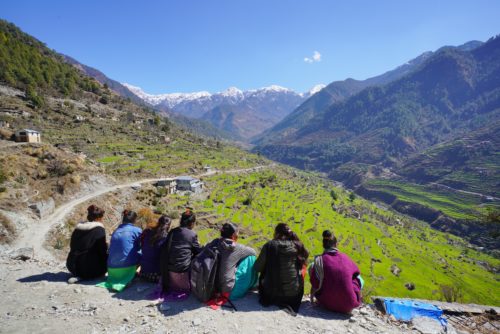
The Junior post gave me once-in-lifetime personal experiences that I will never forget – especially the local people in their living, endogenous, culture, and travelling often days on foot to pristine remote villages in the Himalayas that hardly any foreign person has ever seen before. I learnt to appreciate the Nepalese people, language, habits, and the hard implementation work.
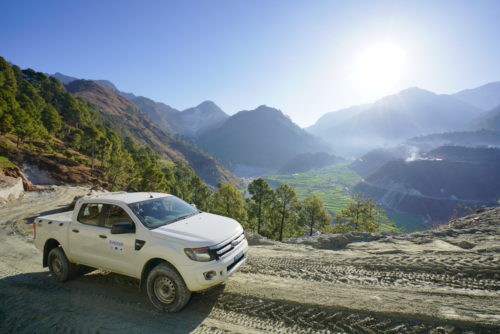
I had a chance to cooperate with a few international Team Leaders and other experts that had made their career in the international development field. The field is nowadays highly competed and dominated by senior male experts that have a long work history. The experience gave me an impression that penetrating to the market would require years of CV development in what-ever international posts available around the world. Among the experts, I met extremely committed, hard-core professionals who work hard and endeavor doing good. But I also met rather uncommitted people who certainly did not meet the requirements of their work, and mainly focused on selling their long CVs to consultancy companies that need them for winning new projects.
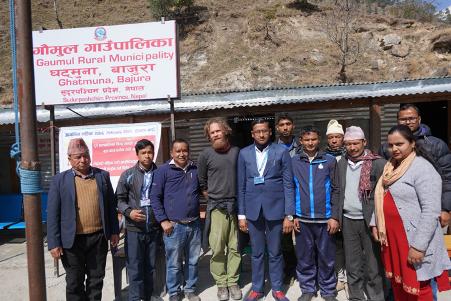
I got an impression that international consultant careers are often made of sequences of short contracts, impossible expectations from the employer and donors, constantly changing locations and workmates (that you cannot select), but also potentially rewarding works and meaningful lifestyle suitable for ‘global adventurers’ who can keep their smiles on in the hardest of circumstances.
I worked closely together with the representatives of the funders: Government of Nepal, Embassy of Finland, and the EU Delegation to Nepal. I also had a chance to follow the work done at the UN/Unicef office in Kathmandu, and in some Finnish INGOs. I found the Finnish INGOs working enthusiastically and doing a good job, but in an insignificant scale resources, and at low level of efficiency. Nevertheless, an INGO may offer good opportunities for hands-on technical experts and operative project managers as well.
The Embassies and the international conglomerates such as the EU and UN may offer good work opportunities, involving strategic planning and coordination, political negotiations, and supervision of the projects, for instance. As you can imagine, masses of bureaucracy and struggles with the continuous political negotiations with the recipient government and international agencies steps into the picture. As I realized when visiting the capital, a Junior post in the UN would have given a rather different but as valuable experience from working together with governments and other central agencies, coordinating big investments and processes such as country-wide SDG implementation, and living expatriate life in the capital.
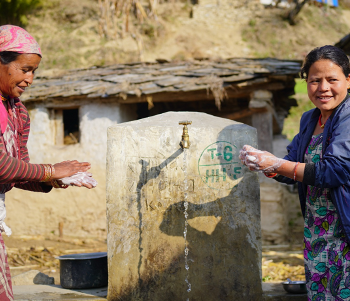
Now, I find myself returning to the academic world. Personally, I the decision was not due insufficient opportunities available in the field of international development. Rather, the come-back resulted from my personal desire to continue with scientific research, and the wonderful team in AaltoWater and Development Research Group. I will, however, definitely keep the door open for new work opportunities in the sector of development cooperation in Finland or abroad, too.
There is life and career opportunities also outside of Aalto University; and not only in the sector of international consultancy that I have here described. It is worth constantly thinking of the possibilities, and considering them along with the academic opportunities when the right time comes.

